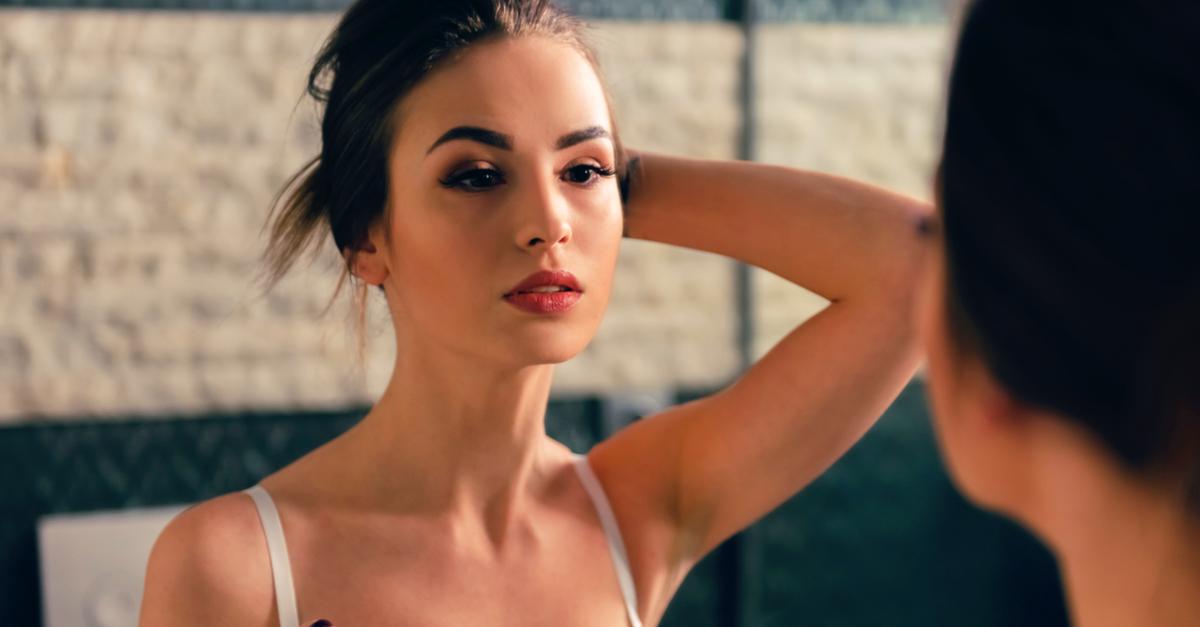Acne is that unsightly, annoying skin condition most of us have endured at some point of life. We have, in all likelihood, experimented with various OTC medications and home remedies to cure this condition but it keeps coming back. This might be because we do not know the type of acne we are dealing with. Depending on the severity of the condition, the treatment may include topical applications, antibiotics, hormonal supplements and procedures such as peels, lasers and extractions. Keep reading to find out the types of acne and how to manage it!
Also Read Pimples On Chest: Cause, Home Remedies And More!
Non-inflammatory Acne
This type of acne normally results in “Comedones” such as Whiteheads and Blackheads. There is no inflammation in these cases as there is no infection yet and is therefore not active or painful.
1. Blackheads

They are caused by the clogging of pores with sebum, dead skin cells and dirt, which are exposed to air and thus turn black. The best way to prevent and minimise their appearance is to cleanse your skin twice a day and exfoliate regularly. If you have them already in abundance, a couple regular facial/clean-up sessions should help.
Also Read How To Get Rid Of Butt Acne
2. Whiteheads
If a comedone is not exposed to air, it is called a whitehead. It is also caused by clogged pores. Regular facials, use of exfoliants and ensuring that skin hygiene and sebum levels are maintained will ensure that comedones are reduced. A simple extraction like the one which is done during a regular facial usually takes care of this condition. Incorporating Salicylic Acid/ Tea Tree/Neem based toners, face washes and hydrating lotions can be immensely helpful in purging pores and keeping them clean.
Also Read: Best Acne Scar Removal Creams
Inflammatory Acne
As the name suggests, this type of acne is usually infected and therefore inflamed. Inflammation is the body’s way of defending itself from the infection by producing white blood cells that fight the infection. Accumulation of these cells can clog pores resulting in painful acne. Depending on the type (or combination of types) of acne one is suffering from, the severity of the condition is deduced. Inflammatory acne can be classified as the following:
1. Pustules

Pustules are hard to touch, usually filled with pus and appear as white spots with a pale yellow center.
2. Papules
Papules are tiny red or white bumps that may or may not be sensitive to touch. Regardless, avoid picking on them, else they will most likely result in a scar.
3. Nodules

Harder than pustules, inflamed but have no pus. May require the use of much stronger medications as it is more severe in nature.
4. Cysts
Deep, painful, pus filled. Some of the most severe types of acne result in cysts, which may require a combination or in house procedures and medication. Once the severity of the condition has been established, your dermatologist is most likely going to prescribe a combination of topical treatments, oral medication and procedures such as laser, chemical peels (different strengths and compositions) or microdermabrasion. One needs to be patient in expecting results as it takes much longer to treat this type of acne. It is crucial that medical advice is sought in order to determine the type of acne so that it can be treated correctly.
In most cases, OTC creams do not work for this type of acne. Popular choices for topical treatments are creams and gels composed of Benzoyl Peroxide, Clindamycin Phosphate and derivatives of Vitamin A. These are usually prescribed in varying strengths and combinations depending on the skin’s tolerance and are to be used ONLY when prescribed.
5. Acne Mechanica

It is caused by excessive heat/friction and is usually seen during the summers or amongst people who lead a very active lifestyle. It is best to approach a doctor to understand the exact cause and treat it effectively. Preventive measures such as frequent showers, loose clothing, friction reducing gels/powders work quite well in this case.
6. Acne Conglobata
It is the severest type of acne which is seen in males and females. It appears as a large lesion on the skin which is interconnected and can often lead to permanent scarring.
Care for your skin when treating the acne
Acne creams are often exfoliating in nature and have a tendency to dry the skin out, therefore, ensure that your skin is well moisturized to avoid excessive drying out or peeling. Alternatively, using them as spot treatment would ensure that that surrounding skin remains untouched. Using a sunscreen is an absolute must in these cases as most of these creams/gels cause photosensitivity which may lead to acne scarring. In cases of severe acne, doctors may prescribe antibiotics or hormonal supplements in a need based manner to tackle the issue.
Images: Shutterstock
You Might Like This



